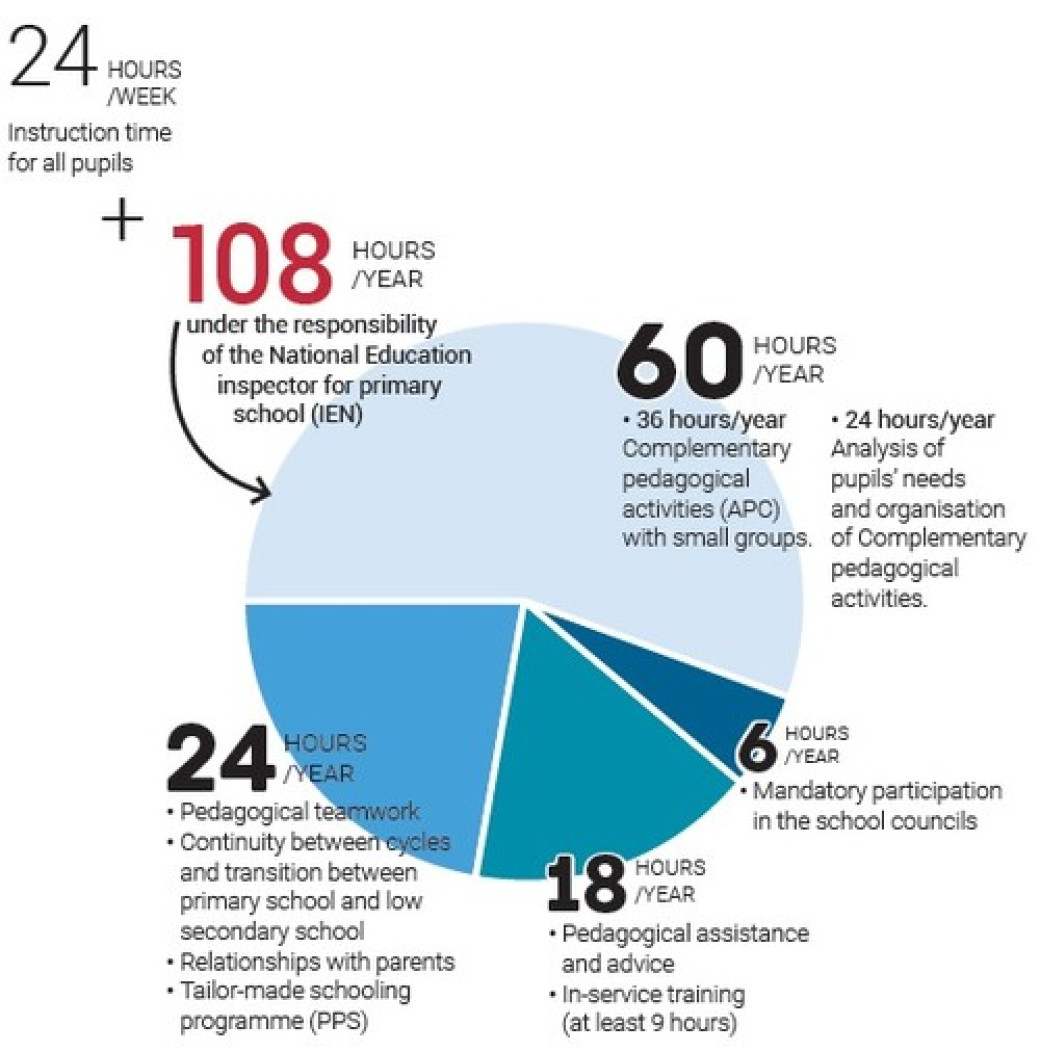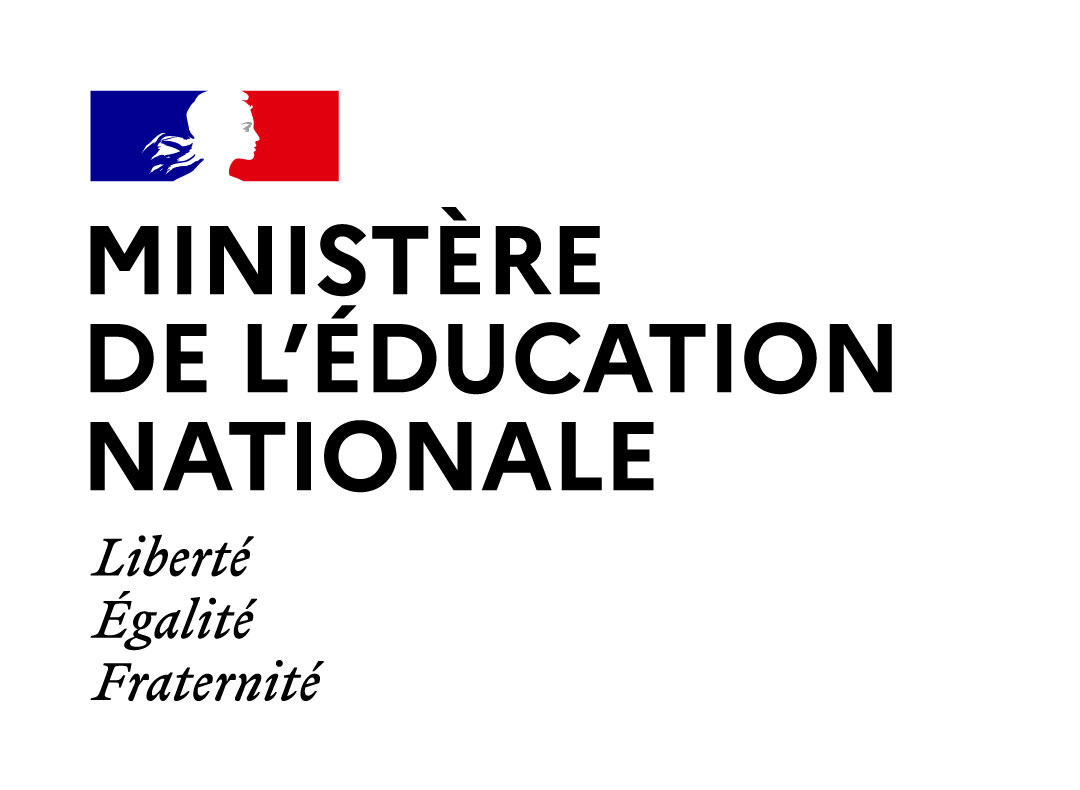
The Education Stakeholders and their role
Mis à jour : juin 2023
The Stakeholders at primary school
Teachers at primary level teach 24 hours a week and accredit 108 hours per year from team work in a teaching cycle, complementary pedagogical activities and participation in the school council. Teachers also spend time on preparing lessons, correcting pupils' work and forging relationships with parents.

How to become a primary school teacher?
Primary school teachers in the French public school system are State Civil Servants and are recruited after completing a two-year master's programme and passing a competitive exam, which is based on the grade level they wish to teach.
To teach in primary schools, candidates take the primary teacher recruitment competition (CRPE) organised by the regional educational authority. Training at INSPÉ (Institut national supérieur du professorat et de l'éducation - Higher National Teacher Training and Education Institute) is highly encouraged. An INSPÉ is a specific training center developed to help individuals become successful teachers. In the training programme, future teachers have early contact with pupils, spend considerable time in classes and receive quality support, including tutoring by other qualified teachers. The training programme of teachers and educational professionals includes a core curriculum offered to all students. This programme not only teaches pedagogical skills, but also how to handle difficult situations between students, mastering the use of technology in the classroom, and working with students who come from diverse backgrounds.
Teachers in private schools work under contract to the state and are also recruited through a competitive exam. They are considered public contractors.
School directors carry out administrative and pedagogical responsibilities, while also representing the institution vis-à-vis the municipality and parents. In schools where at least two classes exist, they are appointed among the school teachers by the education authority inspector (inspecteur d'académie).
National Education inspectors for primary schools ensure implementation of the educational policy in the schools and classes. They also ensure that objectives and teaching programmes are duly respected, they contribute to the management, training and evaluation of teaching staff, and they accompany school teams by providing them advice and expertise.
The Stakeholders at secondary school
The stakeholders at secondary school generally specialise in one, sometimes two subjects (History and geography, Physics and Chemistry). Within the framework of their teaching hours, they ensure the individual follow-up and the assessment of the students and advise them on their orientation project. The number of weekly teaching hours varies according to the status of the teacher : 15 hours per week for a specialist teacher, 17 hours for a teacher specialised in Physical Education, 18 hours for a certified teacher. To all that must be added the time for course preparation, for student's productions marking and for the monitoring of the relationships with parents.
How to become a secondary school teacher?
Secondary school teachers are specialised in one discipline. They are recruited by competition at the master level 2 and become public servants.
Certified professors hold the Certificate of Proficiency in Secondary Education (CAPES) in their discipline or the Certificate of Proficiency in Physical and Sports Education teaching (CAPEPS), while the specialist professors have obtained the competition of Agrégation. Teachers specialised in vocational education have obtained the Certificate of Proficiency in Vocational High School (CPLP).
The head of school guides the local public teaching establishment (EPLE) : they train their responsibilities at the time in quality of representing the State and the president of the administration council. They occupy the function of "principal" at lower secondary school, and that of "headmaster" at upper secondary school. They have authority over all the staff assigned to them, they execute the budget and report on its management to the board of directors, ensuring that the lessons, the orientation and the control of students' knowledge are properly carried out.
Academic inspectors - regional educational inspectors (IA-IPR) and inspectors of the National Education of Technical Education (IEN-ET) supervise the implementation of the educational policy in the classes and schools. They participate in the evaluation of the system and quality of education, inspect and advise teachers, education and guidance staff of secondary schools, participate in teacher training activities and the organisation of examinations, and the recruitment and management of training staff.


